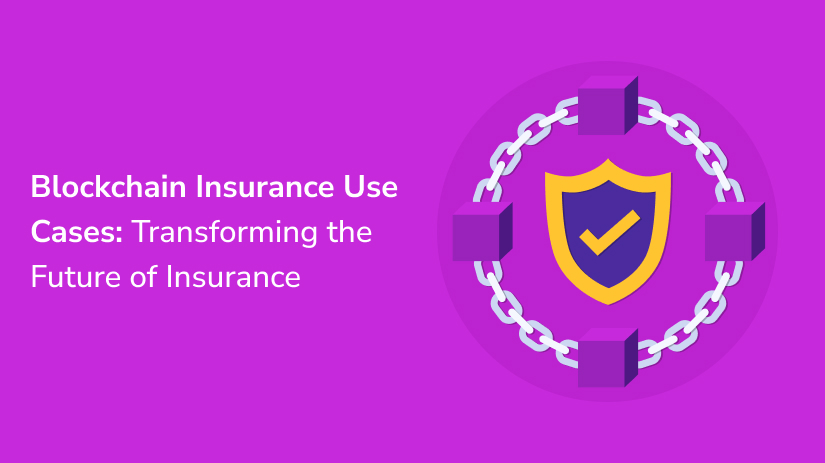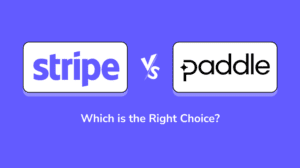Blockchain technology is revolutionizing various industries, and the insurance sector is no exception. This innovation promises to streamline processes, enhance transparency, and reduce fraud.
Blockchain’s potential extends beyond insurance. For example, an online donation management system can use blockchain to enhance transparency and trust, ensuring that donations are used appropriately and effectively.
Here, we delve into the key use cases of blockchain in insurance, illustrating how it can redefine the industry’s future.
Let’s Start!!
Enhancing Transparency and Trust
One of the primary benefits of blockchain is its ability to enhance transparency and trust between parties.
By using a decentralized ledger, all transactions and changes are recorded and immutable. This feature is particularly valuable in insurance, where trust is paramount.
Claims Processing
Traditionally, insurance claims processing is a cumbersome and time-consuming task involving multiple intermediaries and extensive paperwork.
Blockchain can automate and streamline this process through smart contracts, which execute automatically when predefined conditions are met.
This reduces the likelihood of errors and fraud, speeding up the resolution time and enhancing customer satisfaction.
Connect with us for Fintech Development Needs
Trusted by companies like Plaid, Yodlee, Codat.
Fraud Detection and Prevention
Fraud is a significant challenge in the insurance industry, costing billions of dollars annually. Blockchain’s transparent and immutable nature makes it an effective tool for combating fraud.
Every transaction and change to the ledger is recorded and cannot be altered, providing a clear and verifiable audit trail.
Underwriting and Risk Assessment
Blockchain can improve the underwriting process by providing access to more accurate and reliable data.
With blockchain, insurers can access a customer’s entire history across different insurers, allowing for a more precise risk assessment and personalized pricing.
Parametric Insurance
Parametric insurance is a type of coverage where claims are automatically triggered based on predefined parameters, such as natural disasters.
Blockchain can facilitate this by ensuring that the conditions for payout are met, and payments are made instantly. This reduces administrative costs and provides quicker relief to policyholders.
Integration with Existing Systems
To leverage blockchain’s full potential, insurance companies must integrate it with their existing systems.
Partnering with an insurance software development company can facilitate this integration, ensuring that blockchain works seamlessly with current technologies.
Efficient Reinsurance
Reinsurance is a complex process involving multiple parties and significant amounts of data exchange. Blockchain can simplify this by providing a single, transparent ledger where all transactions and agreements are recorded.
This reduces the administrative burden, lowers costs, and improves the efficiency of reinsurance processes.
Connect with us for Fintech Development Needs
Trusted by companies like Plaid, Yodlee, Codat.
Peer-to-Peer Insurance
Blockchain enables the creation of peer-to-peer (P2P) insurance models, where groups of individuals can pool their resources to insure against specific risks.
Smart contracts manage these pools, ensuring that claims are paid out fairly and transparently. This model can reduce costs and provide more tailored insurance solutions.
Streamlining Compliance and Regulation
Insurance companies operate in a highly regulated environment. Blockchain can simplify compliance by providing a transparent and immutable record of all transactions and processes.
Regulators can access this ledger to verify compliance, reducing the administrative burden on insurance companies.
The Role of Financial Software Development
The integration of blockchain into insurance requires robust financial software development. This ensures that all financial transactions are secure, efficient, and transparent.
Companies specializing in financial software development can provide the necessary expertise to build these systems.
Leveraging Rails Development for Insurance Companies
To build and maintain these complex systems, insurance companies can benefit from the expertise of a rails development company.
Ruby on Rails is a powerful framework for developing robust and scalable applications, making it an ideal choice for blockchain integration in insurance.
Conclusion
Blockchain technology holds significant promise for the insurance industry, offering solutions that enhance transparency, reduce fraud, and improve efficiency.
By partnering with experts in insurance application development and leveraging the power of financial software development, insurance companies can harness the full potential of blockchain to transform their operations and provide better services to their customers.
Incorporating blockchain into insurance is not just a technological upgrade; it’s a step toward a more transparent, efficient, and trustworthy industry.
Happy Blockchain Insurance Development!!
Connect with us for Fintech Development Needs
Trusted by companies like Plaid, Yodlee, Codat.





